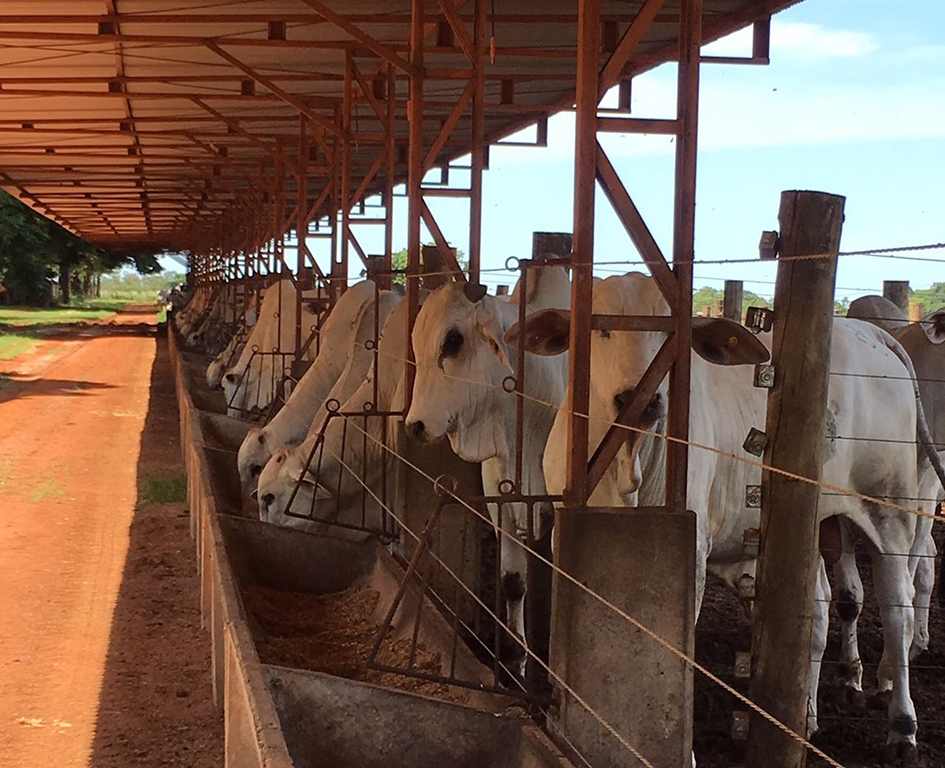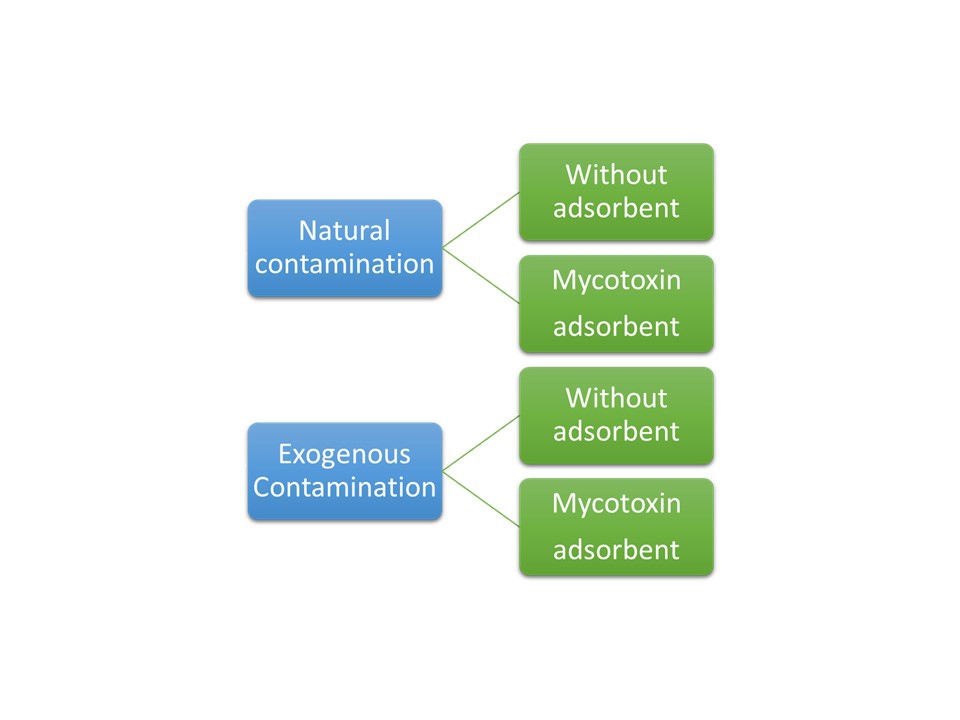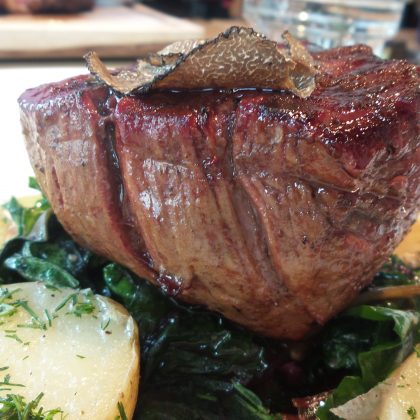Mycotoxins: A hidden hazard for feedlot beef cattle
The animal Article of the Month for October is “Mycotoxin-contaminated diets and an adsorbent affect the performance of Nellore bulls finished in feedlots” by L. Custodio et al.
Mycotoxins (toxic compounds produced by fungi as protection) are present in most feedstuffs. They can occur alone or together (enhancing their effects), and they occur at any production stage. Studies have shown that the toxins are extremely toxic to monogastric animals, but little is known about their effects on ruminants. It was believed that mycotoxins could be inactivated in the rumen. However, studies with dairy cattle have shown this is not always the case. Scientific knowledge about the impact of the presence of mycotoxins in the diet of beef cattle is largely non-existent.

In a previous survey, our research group found that 100% of Brazilian feedlot diets tested had some level of contamination, and in 34.5% of diets, this level was considered medium to high. Based on this fact, we developed the project “Mycotoxin-contaminated diets and an adsorbent affect the performance of Nellore bulls finished in feedlots” in which the objective was to verify the effect of low contamination with mycotoxins and to test a possible solution. The potential solution tested is an adsorbent derived from yeast, which can interact with mycotoxins and make them unavailable for absorption.
So, in this study, we offered two diets with the same chemical composition, one diet with natural mycotoxin contamination and the second one with additional contamination, natural diet plus exogenous mycotoxin contamination. It deserves emphasis that the exogenous contamination was at low levels, representative of about two-thirds of the feedlot diets tested in our earlier survey. Besides that, we tested the effect of the mycotoxin adsorbent (Mycosorb A+) on each diet above. Then, we hypothesized that the diet with exogenous mycotoxins would harm the health and performance of the beef cattle, and the adsorbent would mitigate these negative effects.

The effects of low mycotoxin contamination in feedlot beef cattle were surprising for our research group. The additional presence of mycotoxin (exogenous contamination) reduced the dry matter intake, negatively affected average daily gain, reduced carcass yield, hot carcass weight and consequently feed efficiency. The presence of mycotoxin adsorbent mitigated these effects. Based on these findings, we showed to the scientific community and ranchers that monitoring mycotoxin contamination is not only important in monogastric diets, but also in beef cattle. Moreover, even low levels of contamination reduce animal performance; producers need to use all possible technologies to control contamination and to reduce their effects on animal metabolism, i.e., the use of adsorbents.
The animal Article of the Month for October “Mycotoxin-contaminated diets and an adsorbent affect the performance of Nellore bulls finished in feedlots” is free for a month.
Authors: L. Custodio, L. F. Prados, D. N. Figueira, A. Yiannikouris, E. M. Gloria, V. B. Holder, J. E. Pettigrew, E. Santin, F. D. Resende and G. R. Siqueira
The animal Article of the Month is selected by the Editor-in-Chief and is freely available for one month. View the recent selections





